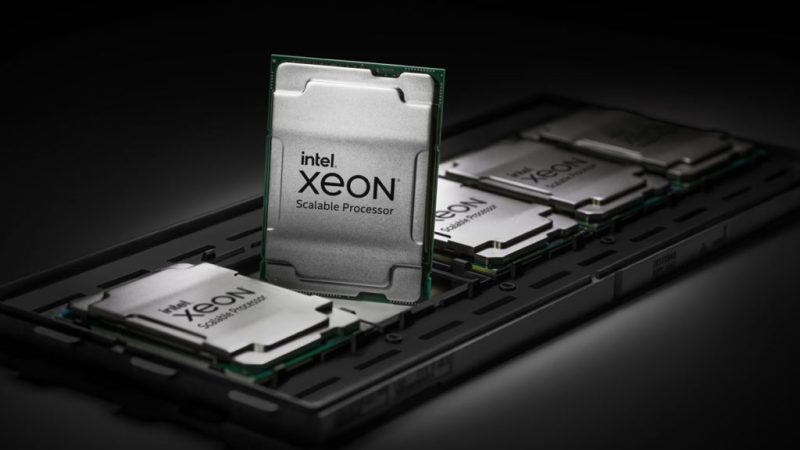In the world of computing, Intel Xeon processors are synonymous with power, reliability, and efficiency. Whether you’re running a data center, hosting virtual machines, or performing high-end tasks like 3D rendering, Xeon processors are often the go-to choice. But what exactly is a Xeon processor, and why is it so widely used in professional settings?
This article explains the Xeon definition , its features, benefits, and why it’s critical for high-performance computing.
What Is a Xeon Processor?
An Intel Xeon processor is a high-performance CPU (Central Processing Unit) designed for servers, workstations, and enterprise-level computing. Unlike consumer-grade processors like Intel Core, Xeon CPUs are engineered to handle heavy workloads, offer greater stability, and provide advanced features tailored for professional environments.
Key Features of Xeon Processors
Multi-Core Architecture
- Xeon processors come with multiple cores (up to 60 or more in some models), allowing them to handle complex multitasking and parallel processing.
- Ideal for workloads like virtualization, machine learning, and database management.
ECC Memory Support
- Xeon CPUs support Error-Correcting Code (ECC) memory, which detects and corrects memory errors, ensuring data integrity and system stability.
- Essential for industries where data accuracy is critical, such as finance and healthcare.
High Cache Capacity
- Xeon processors offer larger cache sizes compared to consumer CPUs, speeding up data access for frequently used instructions.
- Results in better performance for data-intensive applications.
Scalability and Reliability
- Many Xeon processors are designed for multi-CPU configurations, allowing servers to scale up for greater performance.
- Features like built-in redundancy and thermal management make Xeon CPUs highly reliable for continuous operation.
Advanced Technologies
- Intel Xeon processors include features such as Hyper-Threading, Turbo Boost, and AVX (Advanced Vector Extensions) to optimize performance for specific workloads.
- Supports advanced security features like Intel SGX (Software Guard Extensions) for data protection.
Applications of Xeon Processors
Xeon processors are designed for a range of professional applications:
Servers and Data Centers
- Powering web servers, database servers, and cloud computing platforms.
- Handles high traffic and ensures uptime for critical services.
Workstations
- Used in high-performance workstations for tasks like video editing, 3D rendering, and CAD (Computer-Aided Design).
Artificial Intelligence and Machine Learning
- Xeon CPUs process large datasets required for AI training and inference.
Virtualization
- Ideal for running multiple virtual machines efficiently, making them popular in IT infrastructure.
Advantages of Xeon Processors
| Advantage | Description |
| Performance | Handles heavy workloads and multitasking with ease. |
| Stability | ECC memory and redundancy features ensure system reliability. |
| Longevity | Built for 24/7 operation in enterprise environments. |
| Scalability | Supports multi-CPU configurations for expanding capabilities. |
Xeon vs. Intel Core: What’s the Difference?
| Feature | Intel Xeon | Intel Core |
| Target Audience | Professionals, enterprises | General consumers |
| ECC Memory Support | Yes | No |
| Core Count | Higher (up to 60+ cores) | Lower (typically up to 24 cores) |
| Cost | Higher | Lower |
| Power Consumption | Higher | Lower |
Popular Xeon Processor Models
- Intel Xeon Scalable Processors (Ice Lake, Sapphire Rapids): Designed for data centers and cloud workloads.
- Intel Xeon W-Series: Tailored for high-performance workstations.
- Intel Xeon D-Series: Compact and power-efficient, suitable for edge computing.
Challenges of Using Xeon Processors
High Cost
- Xeon CPUs are more expensive than consumer-grade processors, making them an investment for businesses.
Power Consumption
- Higher performance often comes with increased power usage, requiring robust cooling solutions.
Limited Overclocking
- Unlike some Intel Core CPUs, Xeon processors have limited or no overclocking capabilities, prioritizing stability over flexibility.
Conclusion
Intel Xeon processors are the backbone of high-performance computing, delivering unparalleled reliability, scalability, and efficiency for professional environments. Whether you’re running a data center, building a workstation, or managing complex workloads, Xeon CPUs provide the power and stability you need.
Ready to boost your computing performance? Consider Xeon processors for your next project and experience the difference in speed, reliability, and innovation!
FAQs
1. What is the main purpose of a Xeon processor?
Xeon processors are designed for heavy-duty computing tasks, including server management, data analysis, virtualization, and high-performance workstations.
2. Can I use a Xeon processor in a gaming PC?
While technically possible, Xeon processors are not optimized for gaming. Consumer-grade processors like Intel Core i7 or i9 are better suited for gaming.
3. Why is ECC memory important for Xeon processors?
ECC memory ensures data accuracy by detecting and correcting memory errors, making it crucial for mission-critical applications.
4. Are Xeon processors worth the cost?
For businesses requiring reliability, scalability, and performance, Xeon processors are a worthwhile investment.
5. How long do Xeon processors last?
Xeon processors are built for durability and can operate continuously for years in demanding environments.
Also read: Shareholder Vote Exchange: What It Is and Why It Matters









